After five months of protests, a visible schism emerged among Iran’s senior ayatollahs over the death sentences handed down to protesters charged with “corruption on earth” and “enmity toward God.” The numbers of clerics daring to challenge the system were small in a country with tens of thousands of mosques. But the critics were all respected insiders as ayatollahs or grand ayatollahs, ranks held by only a few dozen men. Some were members of the most elite seminary in Qom; others were former members of the judiciary. The dispute was over a profound tenet central to the theocracy.
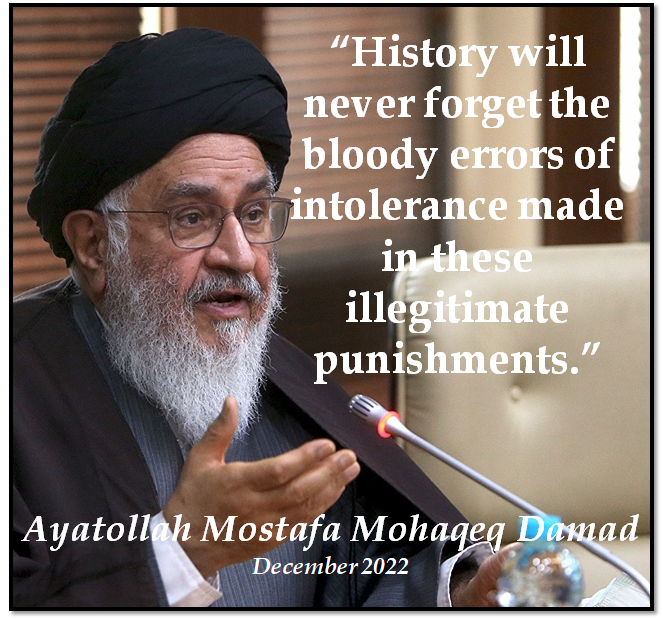 In fatwas and interviews, eight ayatollahs claimed that the judiciary’s interpretation of Islamic law was wrong or misguided. Following the first execution in December 2022, Ayatollah Mostafa Mohaqeq Damad warned in an open letter, “History will never forget the bloody errors of intolerance made in these illegitimate punishments.”
In fatwas and interviews, eight ayatollahs claimed that the judiciary’s interpretation of Islamic law was wrong or misguided. Following the first execution in December 2022, Ayatollah Mostafa Mohaqeq Damad warned in an open letter, “History will never forget the bloody errors of intolerance made in these illegitimate punishments.”
Other clerics more broadly criticized the regime’s treatment of its citizens during the protests. “People have a right to protest. When the police try to obstruct their protest we cannot call it enmity toward God if they defend their rights,” Ayatollah Mohammad Ali Ayazi said after the protests broke out in September 2022.
By February 2023, more than 19,200 protesters had been detained during nationwide demonstrations that erupted after the death of 22-year-old Mahsa Amini, who was in detention for improper dress. Courts handed down hundreds of prison sentences in Tehran alone. Four protesters—all charged with moharebeh or “enmity toward God”—were executed. Another 80 were reportedly charged with the same crime and were awaiting sentencing, according to a leaked report by the Coalition Council of Islamic Revolutionary Forces, a hardline political group closely linked with the Basij paramilitary.
Since the 1979 revolution, the state has declared critics of the Islamic theocracy to be waging war on God. Iran has traditional criminal and civil courts based largely on the Napoleonic code, but it can also charge people with broad, vaguely defined crimes against Islam that are tried in separate Revolutionary Courts. After the initial wave of indictments, protesters were often tried behind closed doors and denied due process, with some trials reportedly lasting as little as 15 minutes. In the Revolutionary Courts, the mandatory punishment for moharebeh is death.
Iran’s Shiite clerics—both conservative and reformist—started to challenge the judiciary’s interpretation of moharebeh in the early months of the protests. Clerics became more critical after the first death sentence was imposed in late 2022. The central dispute was not the crime, but the punishment.
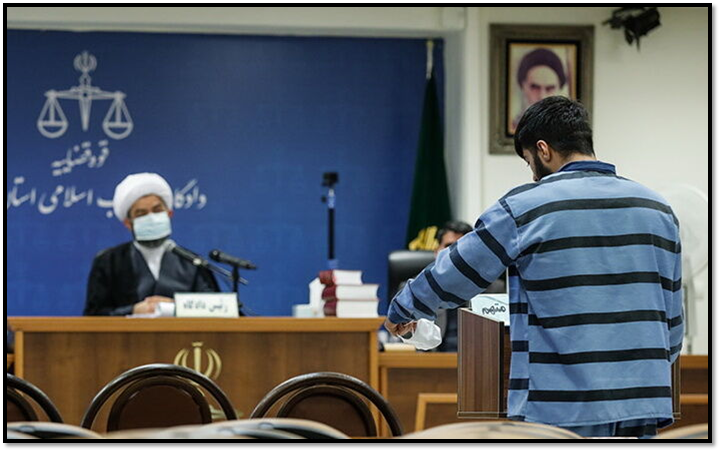
The dissenting ayatollahs charged that both Sharia and the Iranian penal code prescribed a variety of punishments—including exile and amputation—for actions deemed to be crimes toward God. The death sentence was only one option. “The death penalty applies to a perpetrator of moharebeh only when they commit murder; otherwise, such a penalty is illegitimate,” Grand Ayatollah Asadollah Bayat Zanjani said in a November fatwa.
The reaction among hardline clerics was harsh and swift. The supreme leader, president, and elite Society of Seminarians of Qom dismissed the criticism. Yet the tough sentences provoked a debate among senior clerics about Iran’s application of Islamic law—not for the first time.
Iran’s clerical elite have been divided since the 1979 revolution over major issues, such as the role of religion in politics, as well as basics like sentencing for religious crimes such as moharebeh. In the 1980s, Grand Ayatollah Ali Montazeri—once the designated heir to revolutionary leader Ayatollah Ruhollah Khomeini—condemned the mass execution of thousands of political prisoners as “unlawful and un-Islamic.” Khomeini fired Montazeri and ordered him to be put under house arrest in Qom. The following are quotes from critics as well as the regime since the protests erupted.
Clerical Criticism
Ayatollah Mohammad Ali Ayazi, a reformist on the Qom Seminary Researchers and Teachers Association as a member of the Central Advisory Council
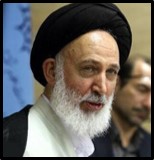
In an interview in December 2022, Ayatollah Ayazi said “enmity toward God” means specific acts, such as “drawing a weapon with the intention of killing”; destroying property or the honor of people; or intimidating citizens “in a way that causes insecurity.” The protests did not rise to this level, he told ILNA news agency. He also demanded that protesters get adequate representation and trials be held in public. “In an issue such as execution, it is important that an independent lawyer defends the accused and that a public hearing is held in the presence of a jury.” Ayazi’s criticism implied that the regime’s executions could be considered a deliberate attempt to intimidate the public.
Grand Ayatollah Mohammad Ali Gerami, a marja (“source of emulation”) and prominent jurist based in Qom
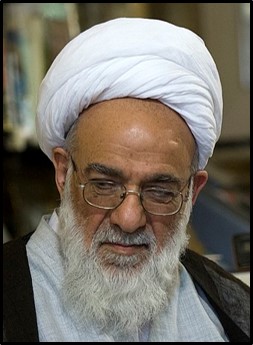
Grand Ayatollah Gerami said that the Quran prescribed three different sentences for moharebeh—execution, amputation of hands or legs, or exile. “If perpetrators have not killed anyone or stolen anyone’s property, then they definitely cannot be sentenced to death,” he told Jamaran News. He also claimed that Grand Ayatollah Ruhollah Khomeini, the revolutionary leader, prescribed exile rather than death for some moharebeh crimes.
Click here for his website.
Ayatollah Morteza Moghtadaei, a hardline member of the Assembly of Experts, a former prosecutor general (1994-2001), and deputy chairman for the Society of Seminary Teachers of Qom
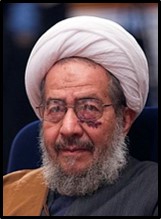
In December 2022, Ayatollah Morteza Moghtadaei charged that the judiciary’s death sentences for “enmity toward God” went too far and did not adhere to Islamic law. Execution was only appropriate if the accused committed murder. If he “only threatens and intimidates, even if he is convicted, he should not get a death sentence,” Moghtadaei told ILNA news agency.
Moghtadaei’s position contrasted with his earlier hardline positions. He was a leading voice backing the execution of author Salman Rushdie for blasphemy in the 1990s. He also encouraged police crackdowns during the Green Movement protests of 2009.
Click here for his official biography.
Ayatollah Mostafa Mohaqeq Damad, a reformist, the head of the Islamic Studies Department at the Iran Academy of Sciences, and former chief of General Inspection Organization (the anti-corruption office in the judiciary)
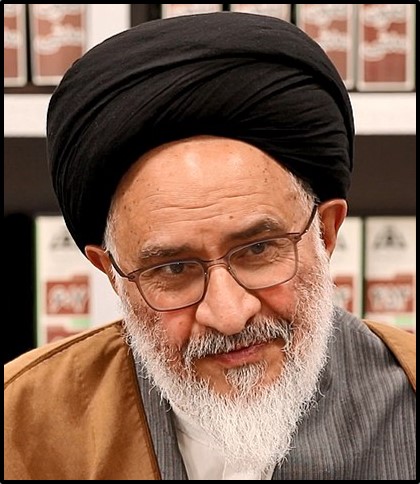
In December 2022, Damad publicly questioned the qualifications of the Revolutionary Court judges and criticized their knowledge of Islamic law. The Revolutionary Courts should respect due process for protesters and adhere to “the Islamic principle of prudence [moderation],” he said in an open letter to the judiciary.
Click here for his website.
Grand Ayatollah Asadullah Bayat Zanjani, a prominent reformist cleric in Qom
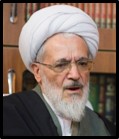
In September 2022, Grand Ayatollah Zanjani castigated the morality police as an “illegal and anti-Islamic body.” In November, he defended protesters acting against unjust actions by the security forces. “Every Muslim is obliged to defend against plainclothes agents who attack protesters with guns or knives,” he decreed in a fatwa. Imposing the death sentence for moharebeh was not legitimate unless the crime involved murder, he told Ensaf News in December.
Click here for his website.
Ayatollah Mohammad Javad Alavi Boroujerdi, a senior cleric and grandson of the late Grand Ayatollah Hossein Boroujerdi (a leading Iranian cleric in the 20th century)
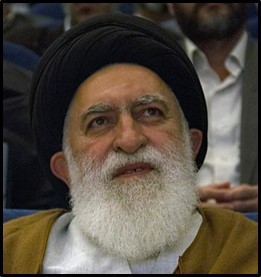
In October 2022, Ayatollah Boroujerdi defended protesters and free speech. “The people have the right to criticize the leader of Muslim society, whether the criticism is justified or not,” he said in a statement to the police and paramilitary. “The press should be free” and “different thoughts should be expressed on state television,” he added. Boroujerdi also urged police to treat those arrested “with mercy.”
Click here for his website.
Grand Ayatollah Nasser Makarem Shirazi, a hardline cleric in Qom and a senior authority on taqlid (or legal interpretations of Islam)
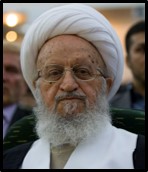
In December 2022, Grand Ayatollah Shirazi said that people convicted of “enmity toward God” did not all act in identical ways and should therefore not be uniformly judged. “The punishment should be proportionate to what the [criminal] has done,” he told Ensaf News. Worldwide, criminal codes offered various punishments for crimes of a common nature, he said.
In January, Shirazi stressed the importance of hijab, the mandatory head covering for women. “The hijab issue is currently linked to political issues, and some people say that if they can remove the veil, the regime’s system will be weakened,” he said in a meeting with the culture minister. But Shirazi added that he did “not consider violence and pressure” to be effective methods for enforcing the hijab law.
Click here for his website.
Ayatollah Mohammad Ashrafi Esfahani, a reformist and former member of parliament
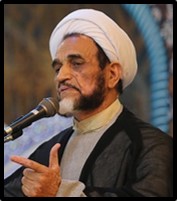
In December 2022, Ayatollah Esfahani charged that the death sentences doled out to protesters were not based on a sound legal foundation. “Many top clerics are silent about it because they think no one in the government will care for their attestations,” he told Rouydad 24 News Agency. He implied that clerics who have been silent were “tarnishing the image of Islam” and allowed government missteps. “It might help if the leader in a bid to calm the situation tells the judiciary to deal with prisoners compassionately,” he said. “This will also be a good publicity for the Islamic Republic.”
Click here for his parliamentary profile.
Retort from Hardliners
In January 2022, the Society of Seminarians of Qom admonished “politically bankrupt clerics” for criticizing the judiciary, distorting Islamic teaching, and sowing further discord. The society, which represents the clerical elite in the center of religious learning, identified Shirazi and Damad by name in the open letter. It warned Damad to “be careful about assigning blame” to the judiciary. It attributed the men’s views to Western influence and alleged their positions were promoted by U.S. and British think tanks “and the usurping Zionist regime with the aim of Islamophobia and anti-Shiism.”
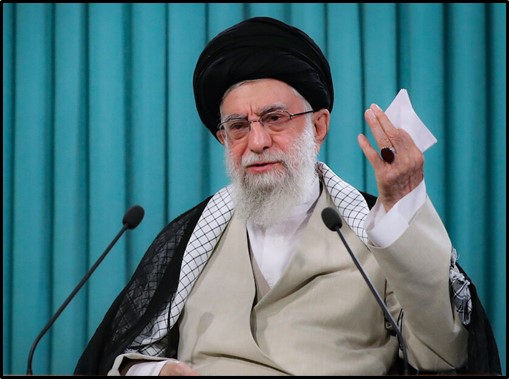
The society endorsed the policy of executing people convicted of “enmity toward God” and warned about the “social costs” of the protests to the Islamic system of government. It accused protesters of “intimidation, promoting violence, creating fear, and making Islamic Iran appear unsafe to the wider world.” The statement added that allowing exile as punishment was “encouraging [protesters] to commit crimes rather than acting as a deterrent.” The only suitable deterrent was death, it said.
Underscoring the depth of divisions at the highest levels of religious scholarship, Shirazi, Moghtadaei and Ayazi are members of the Qom society. And Damad and Moghtadaei are former members of the judiciary.
In January 2023, Supreme Leader Ayatollah Ali Khamenei also defended the judiciary’s interpretation of the law and the executions. He echoed the society’s tough language and the security threat posed by the nationwide demonstrations. “The protesters wanted to destroy our strength. Our security,” he said in a speech. He called on the judiciary to deal with treason “seriously and justly.”
Other hardline clerics have rejected challenges from their brethren too. After the first execution, President Ebrahim Raisi said that the trials and punishment of the protesters should continue unimpeded. Ayatollah Ahmad Khatami, a senior member of the 12-man Council of Guardians, praised “the decisiveness of the judiciary, which sent the first rioter to the gallows.”
Ryan Zoellner, a research assistant at the Woodrow Wilson Center, assembled this report.
